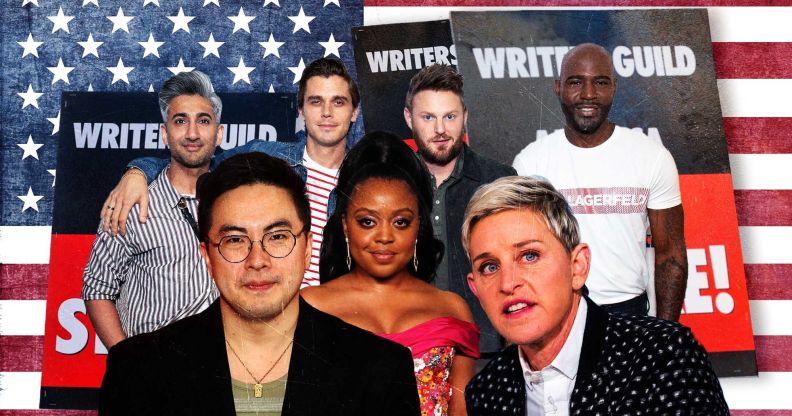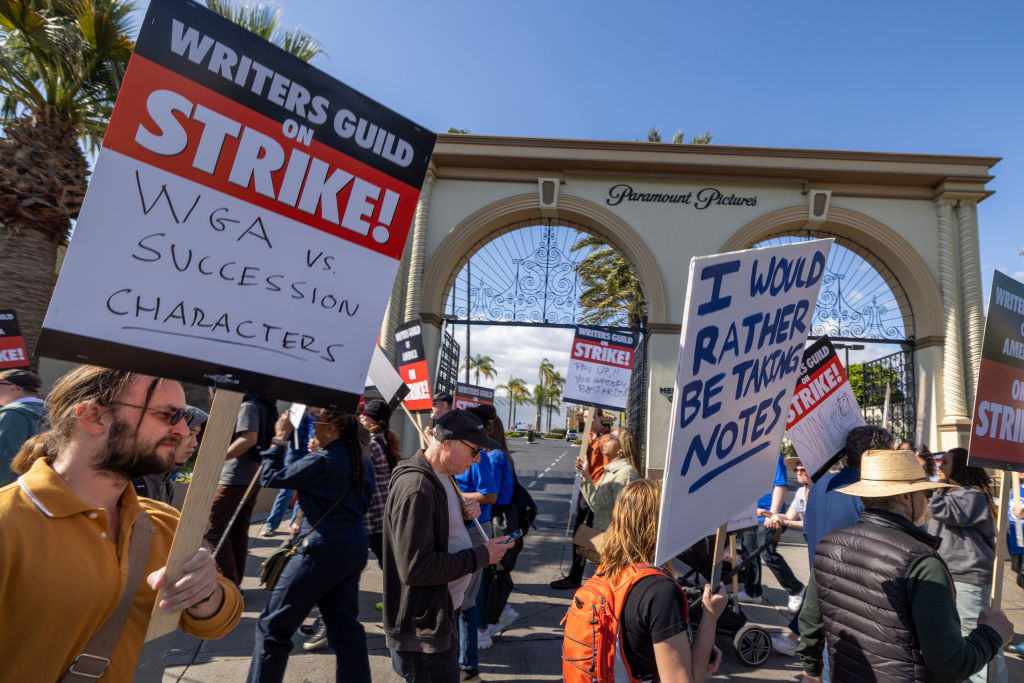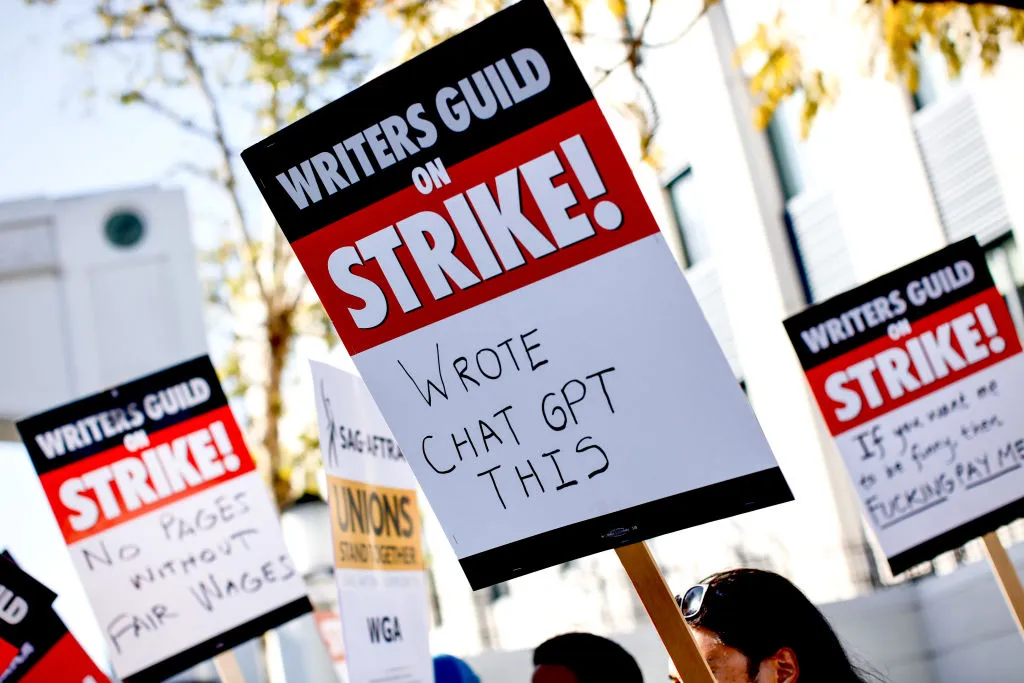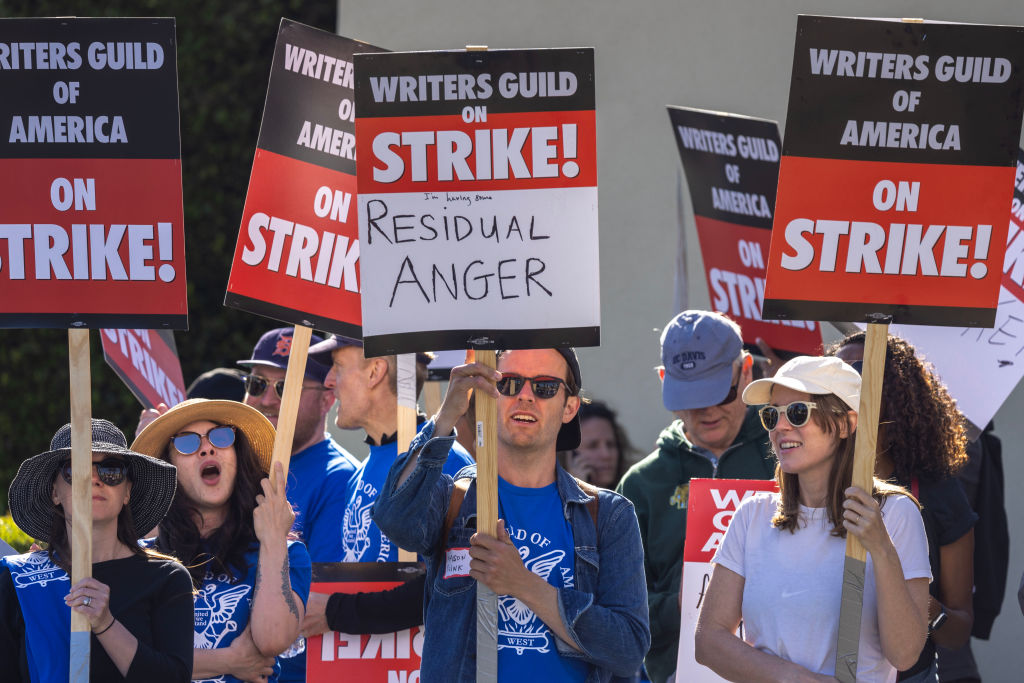Why Hollywood writers are going on strike in 2023 – and how it could affect your favourite show

What is the Writers Guild of America 2023 strike? (Getty)
The television industry is facing seismic disruption as the Writers Guild of America goes on strike.
At Monday’s (1 May) Met Gala, there was one question that almost outnumbered the usual “who are you wearing?”.
Actors, presenters and other stars were asked time and again if they supported a looming strike by the Writers Guild of America.
Amanda Seyfried, the star of The Dropout, told Variety the answer was “f**king easy”, and that writers deserved to be “compensated for their work”.
“Everything changed with streaming,” she said – leaving some puzzled as to what the dispute was actually over.
What is the Writers Guild of America?
The WGA is the joint efforts of two different United States-based unions representing TV and film writers: The Writers Guild of America East, with its headquarters in New York, and the affiliated AFL–CIO The Writers Guild of America West, based in Los Angeles.

Why is the Writers Guild of America striking?
The WGA has been attempting to strike a new deal with Hollywood studios so that its writers are better paid.
The union argues that writers have been negatively impacted by the streaming era, and that studios including Netflix and Amazon’s Prime Video haved “created a gig economy inside a union workforce” according to a statement published by Deadline.
The WGA is seeking a base pay increase for writers, but also wants a new deal on residual payments (royalties) earned from streaming. Currently, writers are paid more for broadcast shows that are a hit, while streaming shows earn them a flat amount regardless of success.
The WGA also wants to ensure jobs for its writers, accusing studios of abusing “mini rooms” where shows are written with fewer writers or over a compressed timeline.
There are also concerns about AI, with the WGA concerned studios could train AI on writers’ work, or rewrite scripts using the technology.
On 1 May, the WGA announced that it had failed to come to an agreement over suitable working conditions for their members.
The union said the decision to strike was made after negotiations produced a “wholly insufficient” response to “the existential crisis writers are facing”.
The Alliance of Motion Picture and Television Producers (AMPTP) said it had offered a “comprehensive package proposal” including higher pay.

Which TV shows and films will be affected by the writers strike?
Late-night TV will be the first to disappear from screens across America.
This is due to the quick turnaround of such shows, with writers rooms riffing on current affairs days or hours before broadcast.
Jimmy Fallon, Stephen Colbert, Seth Meyers and Jimmy Kimmel’s sets will begin to go dark – most of those hosts already touched on the possibility of a strike in shows taped before the walk-out began.
This weekend’s Saturday Night Live has already cancelled. Yep, no more gay Jafar played by Bowen Yang or Pedro Pascal and Sarah Paulson as mummy and daddy, until a resolution has been reached.
After talk shows, the next to be impacted will be network series such Emmy-winning Brunson’s Abbott Elementary and the perpetually chaotic, although pretty queer Grey’s Anatomy. Season that are currently airing will likely have been filmed already, but it’s around this time of year that new seasons go into production for the fall season.
Some shows and films will already have scripts written, but it’s usual practice for writers to be on set for rewrites, meaning they could still be impacted. Notoriously, Daniel Craig wound up rewriting a lot of lines for the 2008 James Bond film Quantum of Solace because of the strike. The result was poorly received.
Daytime soaps are in a less precarious position, as they often have reams of episodes stockpiled (and are filmed in batches). According to Vulture, Days of Our Lives has content to take viewers up to autumn while General Hospital has “about a month left of pre-recorded melodrama”.
And what about streamers? Well, this is where we reach uncharted territory. Neither the WGA strikes nor audiences know exactly what Netflix or Prime will do. There’s a possibility that a “big play” employed by streamers would be to stretch out the release of their already-filmed content, much like the soaps.
For example, Queer Eye’s upcoming seventh series is due to drop all episodes at once on 12 May, but Netflix could change the release schedule to weekly – or even bi-weekly.
Streamers also have the ability to move to international shows, given that it’s only US-based writers on strike. Given the huge success of the likes of Squid Game, it’s plausible.
According to The Hollywood Reporter, Netflix’s chief executive, Ted Sarandos, said: “We have a large base of upcoming shows and films from around the world. We could probably serve our members better than most.”

What happened during the 2007 writers strikes?
The last time the WGA went on strike was in 2007 after disputes on issues such as royalties from DVD sales and how much writers were receiving from them.
The 2007-08 season strike lasted for 100 days, with almost 25 per cent of prime-time scripted programming being lost completely. Queer favourites Desperate Housewives, Ugly Betty and Grey’s all had their seasons cut short.
It did, however, generate a huge boom in reality television, which, by its very nature, is “unscripted”. We could be in line for rather more Real Housewives than desperate ones, which is a good and bad thing depending on how you look at it.
TV show host Ellen DeGeneres also generated controversy by crossing the picket line. She decided not to do a monologue on her show during the strike, explaining that she did not wish to lay off the 135 employees on her staff, but went back to work after just one day.
She said she had no choice, being contractually obliged to keep working. The WGA was unimpressed and issued a statement condemning her and stating that she was “not welcome in NY”.
Eventually the WGA and AMPTP reached an agreement and the strike was called off, but there are fears that this year’s stoppage could drag on a lot longer.

